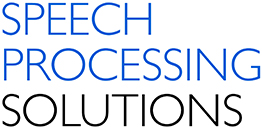Course Description

Active listening is the key to effective communication as it requires a real two-way exchange of information between two or more people. There is a big difference between "hearing" someone speak and "listening with intent", so once you start using the active listening techniques taught in this course you'll experience better results in your relationships both at home and in the workplace.
The PD Training Active Listening training course teaches you crucial skills like how to how to listen attentively, how to show real interest, how to understand what you’ve heard and how to respond appropriately. This course touches on body language as well as specific types of questioning techniques. After learning and implementing these techniques you will become a more effective communicator in all situations.
This is a practical class that is suitable for all audiences and provides people with the tools that they can apply on-the-job (and in other contexts) the very next day. This is an instructor-led class that you can attend from home or your office.
We use secure Video Conferencing with interactive features such as live polling, screen sharing, whiteboards, live chat and breakout sessions.
These courses are facilitated in English, and are open to people from different industries in all countries especially across The United States, Singapore, Malaysia, and Hong Kong - this is a short but powerful learning experience that gives you global collaboration opportunities. Our trainers and processes have been refined to give you a personalised learning experience where it is specifically targeted to your needs, see our outcomes in the reviews.
**Please note, these classes run to a very tight schedule, please follow the invitation and join the class 10-minutes prior to commencement so you are ready to participate and don't miss a minute!
Course Summary
- 3-hour online instructor-led course
- Live Online interactive session with an internationally experienced Expert Trainer
- Small classes, average 5 people, max 20
- Certificate of Completion (always available in the App)
- Comprehensive courseware available in the App
- Globally recognized REACH profiling tool
$USD450.00 per person
Your Learning Outcomes

- Engage more effectively through actively listening
- Understand the difference between ‘hearing’ and ‘listening’
- Learn the techniques to listen actively
- Increase their awareness of communication behaviours
- Understand how emotions effect their ability to listen
- Learn to paraphrase and restate for clarification
- Be able to manage and encourage constructive collaboration
Course Outline
1. Getting Started
- Pre-Assignment Review
- Workshop Objectives
- Action Plans
2. How Well Do You Actively Listen?
- Group Activity
3. What Affects Listening?
- What Affects Listening?
- Things That Prevent Us From Listening
- Listen – Really Listen – Using Minimal Encouragers
- Why Use Minimal Encouragers?
4. Determine Your Communication Behaviours
- REACH and Communication Styles
- Step 1: Increase your awareness and adaptability
- Step 2: Adapt your approach
5. Verbal Communication Skills
- Listening and Hearing; They Aren’t The Same Thing
- Focused Listening
- Asking Questions
- Open Questions
- Closed Questions
- Clarifying Questions
- Body Language
6. High Emotion - Low Intelligence
- How to Accurately Perceive Emotions
- Use Emotions to Facilitate Thinking
- Manage Emotions
7. Tips and Tricks to Manage a Brainstorming Environment
- Tips and Tricks
8. Wrapping Up
- Words from the Wise
- Action Plans
Reviews

The training was conducted in a very professional manner. The trainer makes it a point to interact and get the participants involved. It wasn't a one way lecture but interactive. Overall, the trainer is excellent. The venue is conducive to learning and the materials are sufficient for the topics covered.
- Cambridge International College

The presenter was excellent. Her attention to each participants' aims of the workshop were attended to very well. She directed the training to specific modules which were helpful to particular participants and skimmed over modules that were not as applicable to us. I appreciated her style of teaching and presenting and would recommend her as a trainer to other people.
- Salvation Army

Found the course and the presenter inspiring. Have used the skills learned to look at how I behave and communicate as well as listen to others within the workplace and home. Thanks.
- Barwon Water

Great communication with all parties (both participant and HR) before and after the training. Reminder emails are a good tool. Our participant found the course very useful.
- Precision Electronic Technologies

The trainer provided me with some ideas that I can definitely use when working with the young adults I support. I found the course really informative and whilst it was only a 3 hour session.
- Wesley Mission Victoria

I really enjoyed the course and found the content really useful. I will try to put some of the techniques into practice.
Great course and teacher. It is always good to learn/refresh theory and practice around effective communications techniques. One thing that I thought could have been added was empirical proof of the successes or failures around active listening. Joe did get us to do a couple of 'tricks', but hard data would have been nice at the beginning to anchor why the course is important.
- Department of Education NSW

The training pointed out things we take for granted that affect our effective listening skills.




